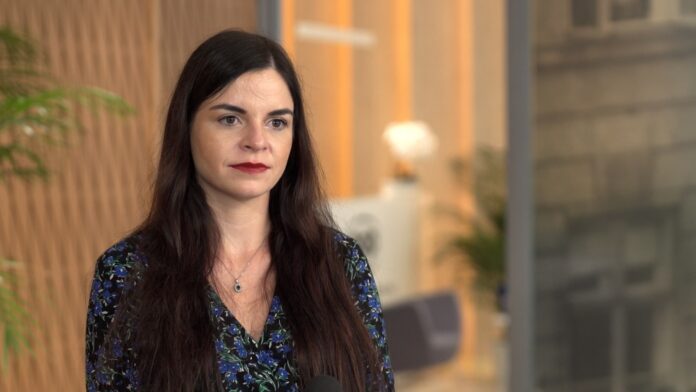On average, every second Pole encounters content related to energy on the internet daily. Even one in five such messages can be misinformation, according to an analysis commissioned by the Polish Association of Professional Power Plants (PTEZ). This is a dangerous phenomenon because fake news about energy can contribute to the radicalization and polarization of society and a loss of trust in public institutions. It can also affect investments in the energy sector and even contribute to the weakening of a country’s energy security. In response to the spread of fake news, PTEZ has initiated a nationwide educational campaign called “Real Energy”, which is mainly aimed at educating Poles and promptly responding to misinformation online.
Topics related to the energy industry – including nuclear power plants, coal and gas, energy prices, climate policy or national energy security – generate a lot of interest among Polish internet users. From January to the end of August this year, approximately 2.5 million mentions of these topics were made on social media (Facebook, Twitter, Instagram, TikTok), news websites, forums and blogs, generating 21.8 million interactions and reaching over 3.5 billion contacts with information on the energy sector. This means that every day an average of 10.3 thousand posts were published, causing nearly 90 thousand interactions and a daily reach of approximately 14.5 million potential contacts. In other words: every day, on average, every second Pole encountered content related to the energy sector online.
“Economic activity is an important part of the economy, it affects all its other segments, but also the daily life of Poles, because each of us uses energy. This is why there is such great interest in this area. And if there is a lot of interest, there is also a lot of false information, manipulated or biased,” said Przemysław Kołodziejak, Vice President of Energy at PGE Polish Energy Group.
“The scale of misinformation in the energy sector is really huge. Of the posts we examined, more than 500 thousand of them repeated in some way untrue content about the energy sector. So there is definitely something to fight with,” said Dorota Jeziorowska, Director of PTEZ.
The combined reach of the false content identified in the PTEZ analysis totalled over 605 million potential contacts, with Internet users leaving about 2.5 million interactions. This means that on average one in five messages about energy on the Polish internet may be misinformation.
“Energy is a very sensitive area in today’s times, especially when it comes to security. Russia, which has been blackmailing Europe with energy for years, recently attacked Ukraine and also uses misinformation in the energy sector. Many of the fake news that Poles encounter on the internet are generated by accounts that simply serve Russian propaganda, inspired by the Kremlin’s special services. However, the spreading of this fake news by ordinary Internet users is often simply due to ignorance and misinformation,” says Maciej Maciejowski from the Polish Committee of Electricity Energy.
Fake news about energy is a dangerous phenomenon in that it contributes to the radicalization and polarization of society, the battles of individual information bubbles and a decline in trust in public institutions. They can also affect investments in the energy sector and even weaken the country’s energy security as a result of propaganda actions by foreign intelligence services.
“This misinformation shapes public opinion, which in turn affects the activities of energy companies. A classic example is protests against the construction of certain energy sources, against the construction of power lines, new gas pipelines, or the use of certain technologies. The misinformation and distortions that appear in the public space have a huge impact on the functioning of the sector and the investments being carried out, which in turn affect energy security and the acceptance or lack of acceptance of certain technological solutions by society,” said Przemysław Kołodziejak.
As the analysis commissioned by PTEZ shows, fake news and disinformation actions mainly concern topics related to coal and gas, nuclear energy, energy prices, the profits of energy companies and the assumptions of climate policy. In public debate, there are often distortions about, for example, the negative impact of nuclear power plants on the environment or the safety of people living near wind turbines.
“Fighting this misinformation is all the harder because all the processes related to the functioning of the energy sector are very complex. There are many conditions that affect its shape,” says Dorota Jeziorowska.
In response to the spread of fake news about the energy sector and the energy market, PTEZ has initiated a nationwide educational campaign titled “Real Energy”. Its main objective is to educate Poles, explain difficult issues and increase the level of knowledge about the functioning of electric power industry and heating. An important part of the campaign is also promptly responding to fake news appearing on the internet, traditional media and public discussion.
“Fighting fake news in the energy sector is very important. We’ve been doing this individually, reacting spontaneously – as industry organizations or energy companies,” says PTEZ’s Director. “As part of our campaign, ‘Real Energy,’ we are planning a range of activities. We will be engaged in media such as TikTok, Twitter, and LinkedIn, and through our website and blog, we want to promote content related to energy widely. We hope we can demystify as many issues related to this sector as possible. We will also debunk fake news on social media and regularly unravel false information that is available online – including those that are reported to us through our website, which we strongly encourage.”
“The website of the campaign, energianaprawde.pl, is a tool for distinguishing real, reliable information from fake news, from purposeful misinformation or simply false information replicated in an unconscious manner. There, anyone can paste a link to the information they are interested in, and competent people, experts from the industry, will be able to verify this information,” adds Maciej Maciejowski. “Generally, while using the internet and social media, it’s worthwhile to pay attention to where the content we replicate and pass on comes from. Often these fake accounts on social media seem suspicious at first glance, they have strange, terse descriptions, fake images pasted from the internet. They activate at pivotal political or geopolitical moments, and this is characteristic of deliberate misinformation.”


















